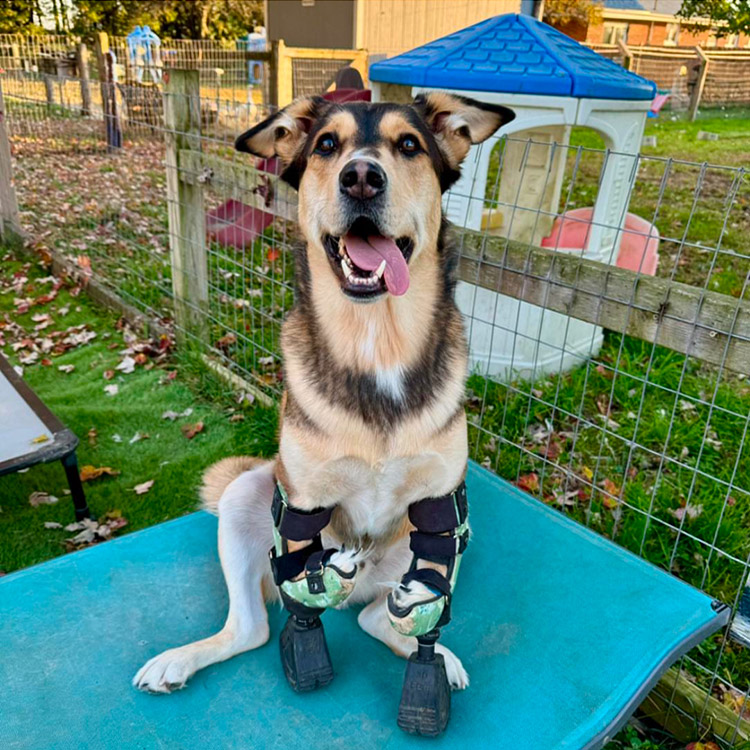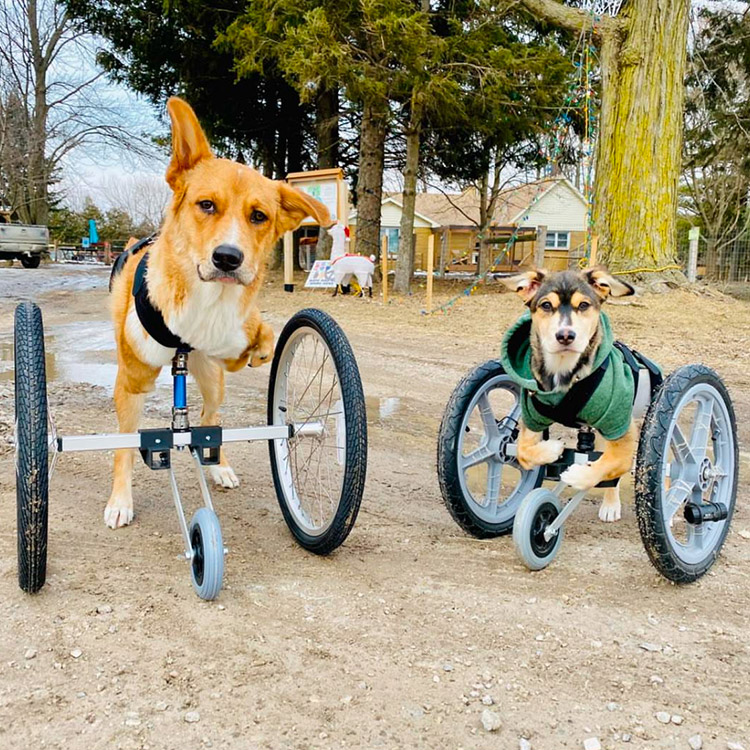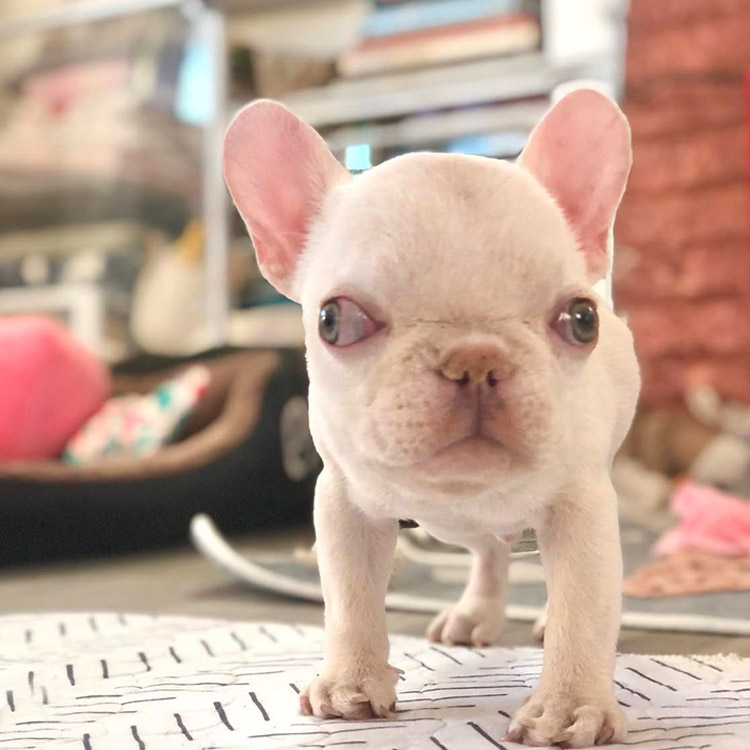Disabled Pets are everywhere!
People who choose to care for disabled pets expect and accept compromise and limitations, and the commitment needed to provide accommodations and extra care to allow their disabled pets to live their BEST LIVES. They rely on veterinarians to support, guide, and address the medical needs of their disabled pets.
Pet parents of disabled pets come to their trusted veterinarian wanting understanding, compassion, solid medical advice and care, support, and respect. Veterinarians can diagnose and treat complications associated with disabilities in pets. But many vets are not aware of the potential for disabled animals to have a good quality, productive, meaningful life. Caring for disabled pets involves more than treating secondary medical aspects. Caring for disabled pets is somewhat of an art where in many cases, vets need to be creative and have an open mind.
Some vets and their clients do not agree on the Q of L of disabled pets. In some cases, vets might not realize the potential for disabled animals to lead a good quality of life. But some vets simply have a lack of experience, lack of imagination, and lack of understanding about the depth of care clients are willing and able to provide. Some might feel skeptical about getting involved due to misconceptions and lack of experience and exposure to profoundly disabled animals. They question quality of life for some animals, having conflicting opinions about pets that clients insist are living happy lives despite profound disabilities and secondary chronic (debilitating) medical conditions.
Disabled pets have basic as well as complicated medical needs that sometimes require more thought, innovation, and time than other patients. They come with pet parents who will go to great lengths to keep their animals comfortable and happy. These pet parents need objective but compassionate guidance as they navigate caring for their pets who have a wide range of disabilities. Some, but not all, veterinarians are willing and able to offer the extra thought, time, and effort it takes to support clients and their disabled pets. Many clients with disabled pets find themselves switching from vet to vet searching for a doctor who will understand and care for them.
Veterinarians are presented with disabled animals from many different sources.
These may be senior pets that have recently become disabled, newly rescued and adopted pets, as well as breeders. Quality of life is relative and individual, and comes up very frequently. Pet parents want reassurance that they are doing everything to care for their disabled pets.
Breeders commonly cull and request that vets euthanize baby animals that might have the potential for a perfectly good quality of life despite a congenital disability.
It's really important to note that veterinarians have the option to euthanize when appropriate. It is not an obligation or a requirement! Vets can discuss quality of life, educate, and make recommendations for treatment of medical conditions, general care of chronically ill or disabled pets, or placement of disabled animals.
Quality of life is relative and the perception of a good Q of L is not always based in reality.
Defining a good quality of life: Good vs Different
Can a profoundly disabled animal have a productive, meaningful, happy, quality life? There is a wide range of disabilities with a wide range of outcomes. We evaluate Quality of Life for each individual, not in comparison to any other animal, disabled or not.
We focus on what they can do, not what they can't. Animals with non-life threatening disabilities commonly surpass initial expectations.
Does a dog need to hike off leash, swim in a lake unassisted, fetch a ball, urinate and defecate on their own, eat or even ambulate without assistance, to have a good quality of life? Does a cat need to hunt for mice outside in a barn or be able to ambulate in a perfectly straight line?
Consider that:
- Compromise, limitations, accommodations are all expected for disabled pets.
- With proper medical care, accommodations, and patience, many disabled animals adapt and lead exceptionally happy good quality lives.
- Disabled pets require extra care that many people ARE happy to provide.
- They need compassionate, supportive, knowledgeable, and willing veterinarians.
Maintaining dignity and a good quality of life is a top priority for all pet parents, especially at the end of a pet's life. We accept decreased mobility, hearing and vision loss, decreased kidney function, anxiety, good and bad days in an older pet's life.
We do Q of L consults to determine palliative care and eventually euthanasia if needed.
So why are attitudes and expectations different for a deaf blind puppy vs an older dog that has become deaf and blind?
There's a wide world of resources both on the internet as well as within a current client base for vets to connect and collaborate with to improve the lives of disabled animals and the people who love them. Veterinarians can easily become the central information hub for clients and their disabled pets by outsourcing to reliable sources of support, supplies, physical therapy, and pet sitting for their client's pets.
How will this happen?
When vets are presented with animals with disabilities and extra medical needs they might initially question quality of life.
In some cases the vet might feel so strongly about Q of L that they truly can't see how someone would keep an animal with such profound disabilities. This is a gray zone because ultimately, veterinarians should be the authority on Q of L when it comes to their patients.
Some vets might recommend euthanasia for some of these patients, and sometimes this recommendation prompts the client to seek care elsewhere.
But when veterinarians realize that their disabled patients are actually leading a very comfortable, meaningful life, they realize that there is an opportunity to support their clients and disabled pets by:
- Finding other clients whose pets have similar issues to serve as mentors
- Learning about online support groups and other sources of information for your clients
- Sharing a list of these helpful mentors, groups, rescue organizations, and other resources with their clients
Disabled Pet Parents are the very best, committed, compliant clients.
Disabled animals learn to adapt and compensate for sometimes profound limitations in their abilities and daily routines.
Veterinarians offer support and guidance for these pets and their parents over and above treating their medical conditions.
Vets arrange for clients with a new disabled patient to meet clients with a similarly disabled pet that can serve as a mentor.
Vets provide a list of online support groups, rescue organizations, trainers, products, and other resources that can help all of which can be found on our website disabledpets.org.
Share your positive experiences with colleagues!

@wallywallabysworld

@winnie_the_roo

presentmomentrescue
